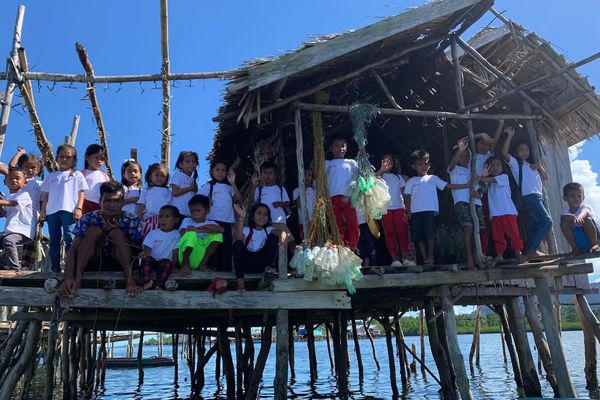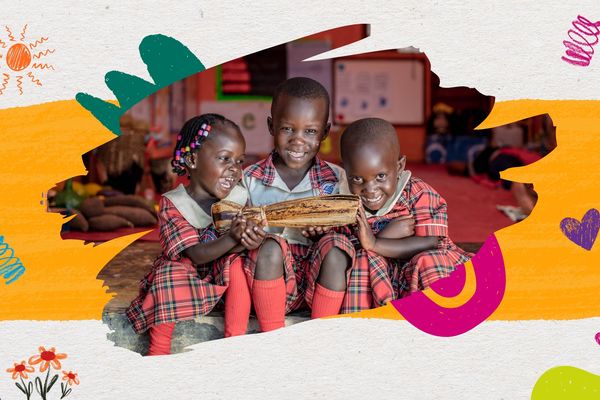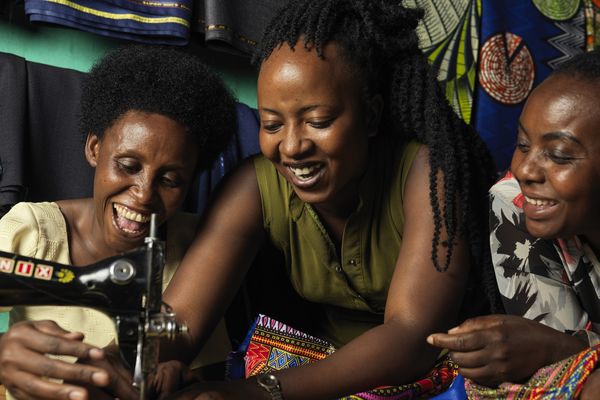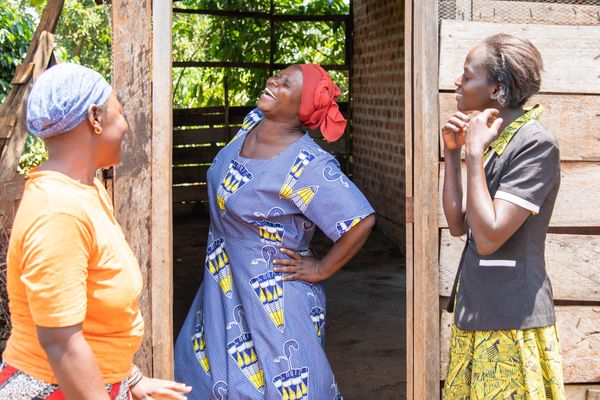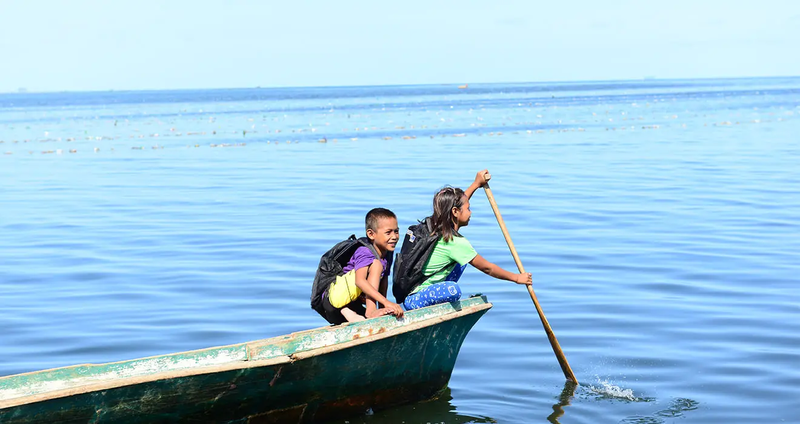
Despite innumerable barriers to delivery, BRAC Philippines is pushing ahead to ensure access to quality education for children in underserved communities.
A few weeks ago, I had the opportunity to visit some of BRAC’s learning centres in the Philippines. Being my first international field mission, it was a major learning experience for me, and I was absolutely awed by how remote some of these centres were.
When we landed in Tawi Tawi, a province in the southwest part of the Philippines, the first thing that struck us was the beautiful turquoise blue waters that surrounded us. The second thing that struck us was the single flickering network bar on our phones. Even though we were on an island province, our location was as close to the mainland as possible, so the lack of network came somewhat as a surprise to us.
The next day we were off at sunrise, with the goal of visiting some of our learning centres, housed in the many islands of Tawi Tawi. We were accompanied by a 10-member squad of armed maritime police. The presence of our entourage served as a stark reminder of the constant bloody conflict ongoing across these islands, despite the serene background of the blue waters.
After about three hours of speeding across the sea in the maritime police speedboat, we approached a house made of bamboo, raised above the sea level. Here, we shifted to a much smaller boat having a capacity of only five people. As we sped across the sea, the salt water hit our face while the sun mercilessly beat down on our heads.
About 20 minutes later, we neared a small group of houses, similarly built to the one we had just stopped at. And from one of those houses a group of excited faces peeked out, eyes shining with curiosity. We docked the boat and then crossed over to the classroom, walking over a rackety plank made of bamboo placed as a makeshift bridge between the two houses.
The children welcomed us enthusiastically, thrilled to be meeting people from a different country. They were excited to recite for us the Tagalog poems they had learned which were created by the learning facilitators to teach the alphabet and spellings in a fun, interactive way. The learning facilitators are local community members recruited as teachers, and they develop and contextualise the study materials with support from BRAC staff. The extensive involvement of the facilitators ensures the development and delivery of quality materials specifically customised to the needs and context of the communities they work in.
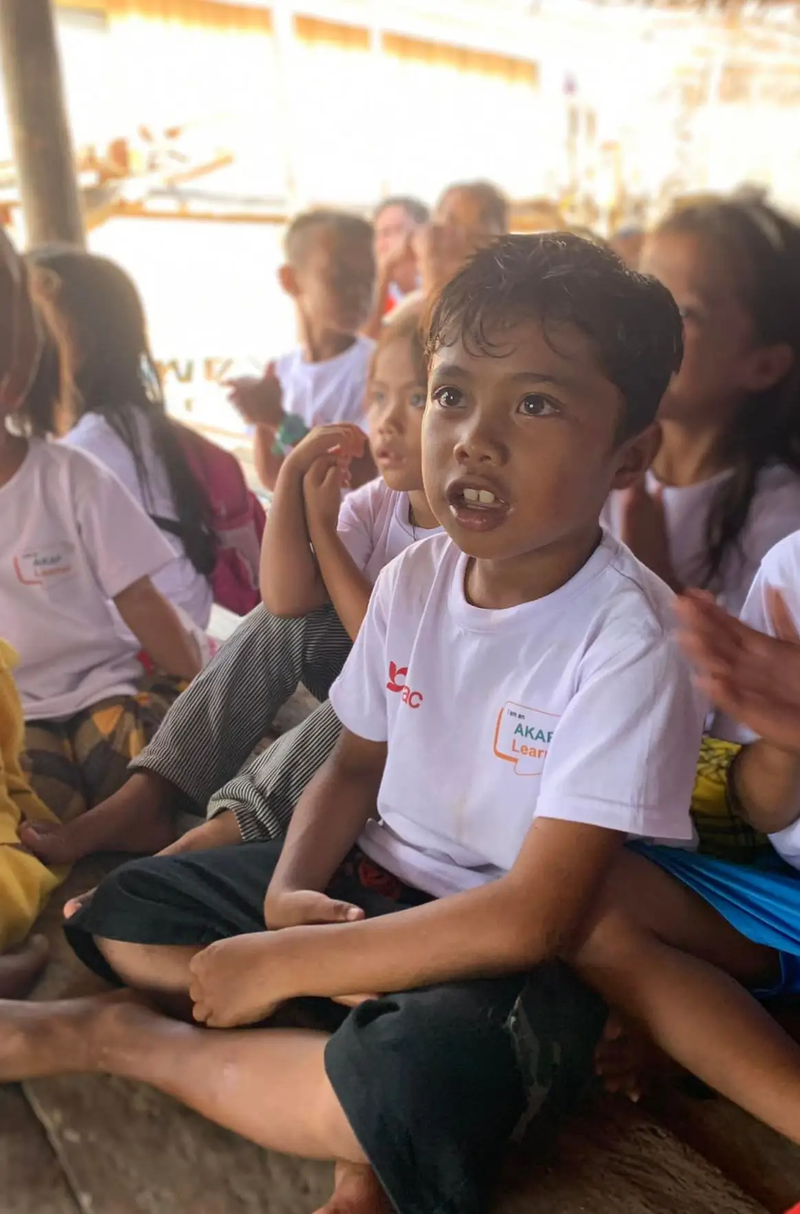
The Abot Kaalaman sa Pamilyang Bangasamoro (AKAP) project is being implemented under the Ministry of Basic, Higher and Technical Education (MBHTE), with support from the Government of Australia through the Education Pathways to Peace in Mindanao Programme. BRAC’s community-driven approach, combined with the play-based alternative delivery model for children aged 5-10, enables them to build critical soft skills in addition to learning reading, math, and other core subjects. The interactive mode of teaching encourages children to participate more in school, and it was clear from the children’s enthusiasm that they loved coming to the centre and learning from their beloved teachers.
At the end of the session, we asked the learners if they had any questions or requests for us. We were told only one thing – They wanted a SAT radio at the centre so they could communicate with the mainland easily. It drove home the realisation of just how remote and disconnected these learning centres are from the mainland. Without the BRAC learning centres, these children would not have any access to education, their future limited to fishing or labour work.
Despite the lack of connectivity and remoteness of the learning centres, our staff and learning facilitators are staying and delivering quality education across 93 barangays in the Philippines. Many have stayed with BRAC Philippines since the beginning, through project changes and evolving curricula.It is only the perseverance and firm dedication of the staff to ensuring access to education for these children, that allows BRAC to deliver uninterrupted quality education services to the remotest regions against all odds.
BRAC started working in education in 1985. Its holistic approach to lifelong learning, addressing educational needs from early childhood to higher academic levels supported over 15 million students across seven countries to graduate.
Get to know more about BRAC International’s Education Programme on our website.
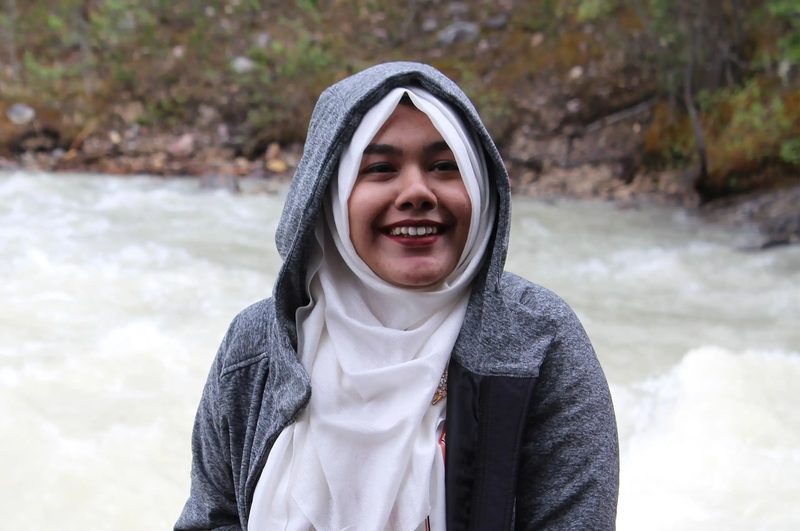
Mehreen Khair is the Programme Officer for Asia Region. She provides support to the BI country offices across Asia region in project implementation activities, proposal development, fundraising, documentation and reporting, as well as logistical support in organising events and workshops.
